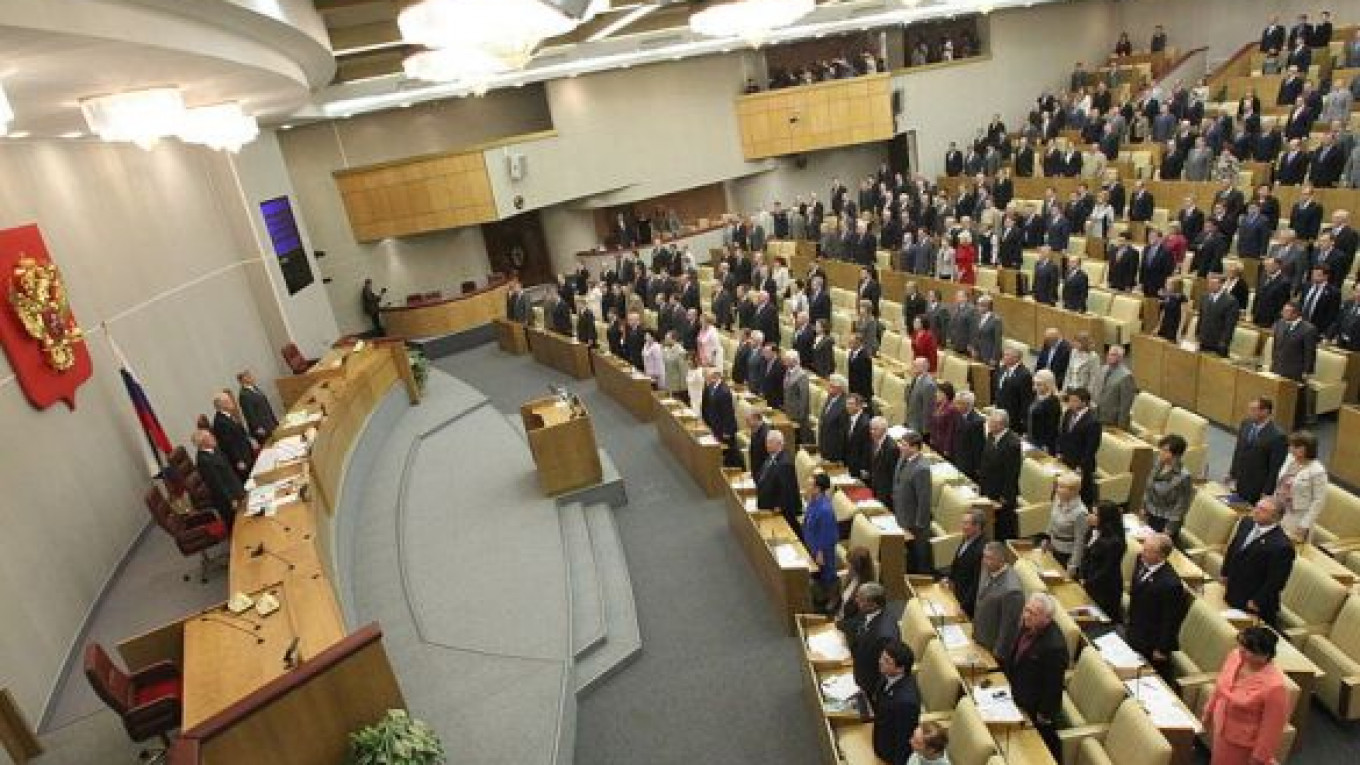ST. PETERSBURG — The Film and Television Producers Association wants social networks to be responsible for the content that users upload, and the association is pressing for legislation to reflect that view.
"To produce [movies and TV content] we need to earn money. But how can we do this without help from the state?" Anna Krutova, adviser to the association's management board, told The Moscow Times on the sidelines of the St. Petersburg Economic Forum.
The State Duma is considering a raft of potential Civil Code amendments on intellectual property, and the association wants the text to be altered to make social networks liable for pirated content.
Opponents insist that such a revision would censor the Internet, a key source of expressive freedom in Russia.
Currently, social networks and hosting services are not obliged to discourage illegal file sharing on their platforms.
The Film and Television Producers Association sent an open letter to the State Duma, the president and the prime minister in April asking to change the draft amendments. But, so far, there has been no response.
Dmitry Grishin, general director of Mail.Ru Group, agreed that "a compromise is needed" regarding the file-sharing issue, but he warned that legal actions should not be made in haste.
"Modern technologies are changing very fast, so before introducing legal regulations, it's necessary to let the situation settle down," Grishin told the St. Petersburg forum.
But he also noted that while Russians are increasingly using the Internet, there is still a lack of locally available online resources that offer quality legal content.
As a result, people have to use pirated products, he said.
"Five years ago people were not ready to pay for Internet content in Russia. Now they are ready, but there is no [such resource]," Grishin said.
Alexander Akopov, president of television show producer Amedia, said a Russian resource offering Western movies and TV series as they are released abroad should be launched by Jan. 1. He declined to reveal details.
The lack of legal protection against piracy only makes it harder for the domestic film industry to compete with Hollywood, said Krutova of the Film and Television Producers Association.
Poor protection of intellectual property rights had for a long time been among the major problems hampering Russia's accession to the World Trade Organization. The nation finally achieved accession late last year after 18 years of negotiations.
Miriam Sapiro, a deputy U.S. trade representative, said Russia has made progress in protecting intellectual property, but more steps still need to be taken.
In May, for the 16th year in a row, the U.S. Department of Commerce put Russia on its annual listing of nations with the poorest intellectual property rights' protection.
That report did, however, praise Russia for establishing a court that will begin presiding over intellectual property disputes in February 2013 and for taking legal actions against websites and social networks that carry pirated content.
In January, a St. Petersburg court ordered Russia's most popular social network, VKontakte, to pay 210,000 rubles ($6,300) to Gala Records for playing and sharing some of its copyrighted songs.
A Message from The Moscow Times:
Dear readers,
We are facing unprecedented challenges. Russia's Prosecutor General's Office has designated The Moscow Times as an "undesirable" organization, criminalizing our work and putting our staff at risk of prosecution. This follows our earlier unjust labeling as a "foreign agent."
These actions are direct attempts to silence independent journalism in Russia. The authorities claim our work "discredits the decisions of the Russian leadership." We see things differently: we strive to provide accurate, unbiased reporting on Russia.
We, the journalists of The Moscow Times, refuse to be silenced. But to continue our work, we need your help.
Your support, no matter how small, makes a world of difference. If you can, please support us monthly starting from just $2. It's quick to set up, and every contribution makes a significant impact.
By supporting The Moscow Times, you're defending open, independent journalism in the face of repression. Thank you for standing with us.
Remind me later.






